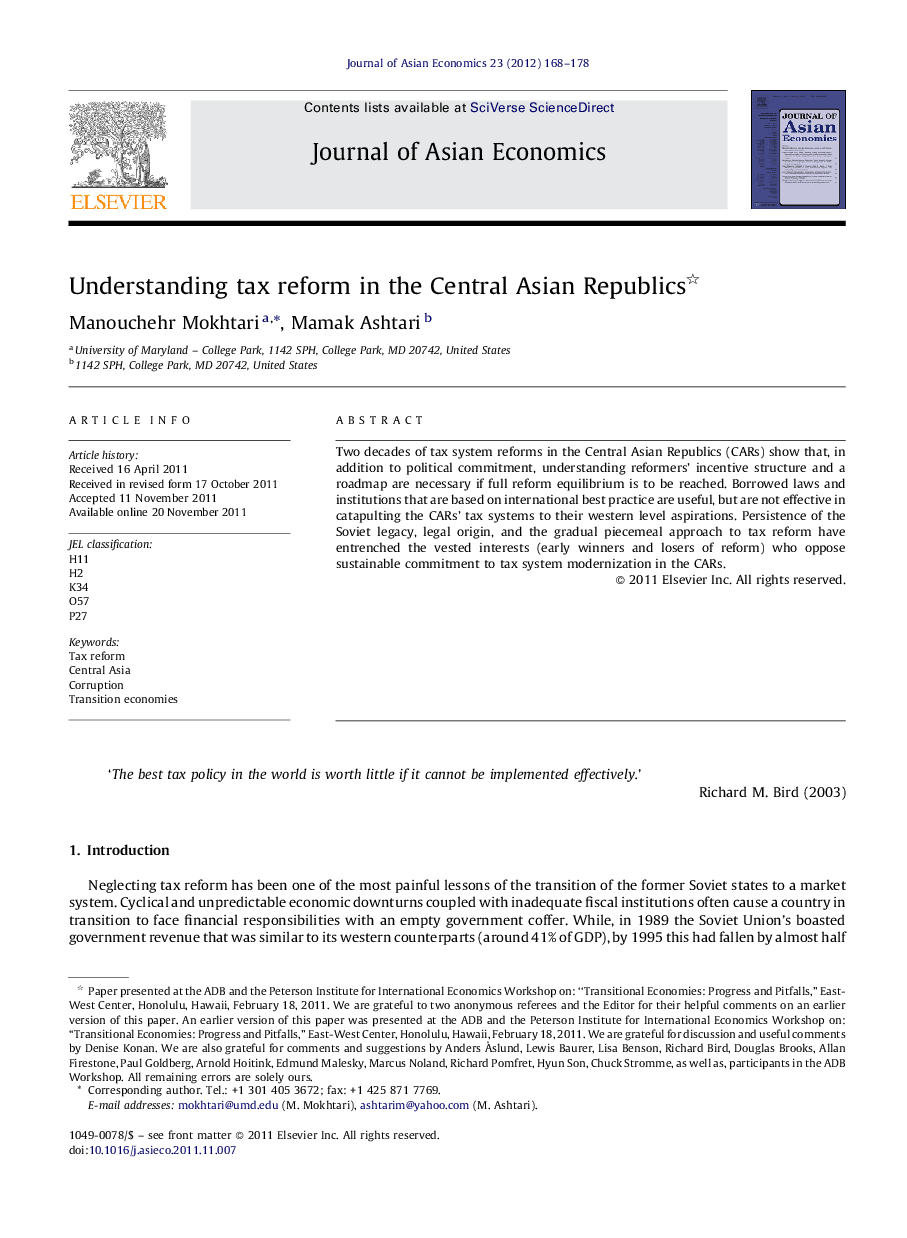| Article ID | Journal | Published Year | Pages | File Type |
|---|---|---|---|---|
| 5087549 | Journal of Asian Economics | 2012 | 11 Pages |
Two decades of tax system reforms in the Central Asian Republics (CARs) show that, in addition to political commitment, understanding reformers' incentive structure and a roadmap are necessary if full reform equilibrium is to be reached. Borrowed laws and institutions that are based on international best practice are useful, but are not effective in catapulting the CARs' tax systems to their western level aspirations. Persistence of the Soviet legacy, legal origin, and the gradual piecemeal approach to tax reform have entrenched the vested interests (early winners and losers of reform) who oppose sustainable commitment to tax system modernization in the CARs.
⺠Tax reform experience in countries in transition shows the need for reformer's incentive structure and a roadmap. ⺠International best practice is useful but not sufficient for tax system modernization. ⺠Tax policy and tax administration reforms should be carried out simultaneously. ⺠Tax policy reform points to competitive and flat tax rates among countries. ⺠Tax administration modernization requires political commitment while addressing the curse of legal origin.
